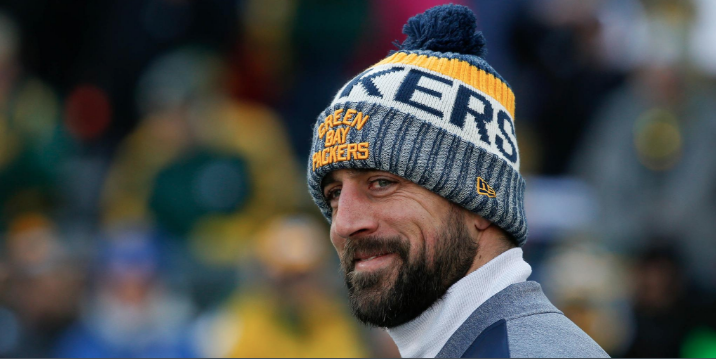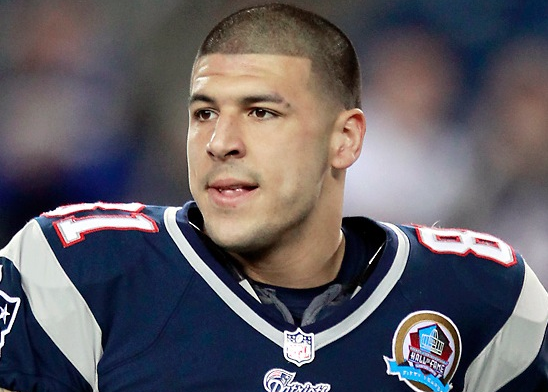Aaron Hernandez Saga Gets More Bizarre
09 May, 2017
The late Aaron Hernandez is no longer a convicted murderer. In fact, as peculiar as it sounds, you might even describe the former Patriots tight end as “innocent”—although doing so would require that a sizable asterisk be placed after the word “innocent.” If this all sounds strange, it’s because of how the law regards the impact of Hernandez dying before his appeals had been heard.
On Tuesday, Massachusetts Superior Court Judge Susan Garsh vacated Hernandez’s 2015 first-degree murder conviction for the death of former semi-pro player Odin Lloyd. Judge Garsh’s ruling, which also vacates Hernandez’s conviction for two accompanying firearm charges, is consistent with “abatement ab initio”, a legal principle recognized in Massachusetts which holds that a judge must vacate the convictions of a defendant whose appeals had not yet been heard at the time of his death.
In effect, abatement restores the defendant’s status to a time before the defendant was charged with a crime. As detailed in a recent SI article, Hernandez taking his own life arguably should complicate the legal analysis for whether a judge ought to grant abatement. Judge Garsh, however, declined to find Hernandez’s suicide—and the possibility that Hernandez killed himself to financially advantage his heirs—to be a distinguishing factor. In fact, Judge Garsh declined to hold an evidentiary hearing on the circumstances of Hernandez’s death, reasoning that the conclusion of such a hearing would not change her legal analysis.
The issue is by no means over. District Attorney Thomas Quinn, III of Bristol County (Mass.)—where Hernandez was convicted of murdering Lloyd—will appeal Judge Garsh’s ruling to the Massachusetts Supreme Judicial Court. An appeal will likely take several months and possibly over a year to play out. Therefore, it will be some time before final resolution on whether Hernandez’s convictions are abated. In addition, while a Boston jury last month acquitted Hernandez for the murders of Daniel de Abreu and Safiro Furtado, the jury convicted him of unlawful possession of a firearm, a felony. A court in Boston would need to vacate that conviction for Hernandez’s record to be cleared.
Judge Garsh’s ruling is a major victory for Hernandez’s estate and its beneficiaries, most notably Hernandez’s four-year-old daughter, Avielle Janelle Hernandez. Hernandez’s fiancée, Shayanna Jenkins Hernandez—a suicide letter attributed to Hernandez told she was “rich”—may also stand to benefit if not directly than through money paid to her and Aaron’s daughter, Avielle.
Although courts records show that Hernandez’s estate is currently worth $0, there are pending and possible sources of considerable money for the estate and/or Hernandez’s heirs. Those sources include the pending sale of Hernandez’s North Attleboro (Mass.) house, valued at $1.3 million, and Hernandez’s NFL pension, which kicked in by virtue of him playing three seasons. There are other potential payments, including any life insurance policies purchased by Hernandez that do not deny payment based on Hernandez taking his own life. Perhaps the most controversial potential payment concerns whether the Patriots now owe unpaid contract money to Hernandez, through his estate, on grounds that he no longer has been convicted of murder.
SI.com
Mentioned In This Post:
About the author
Related Posts
-

F*ck You Father Time!
-

Romeo Miller and the Ex's on the Beach
-

It's Mueller Report Time!
-

It's Raining Money In The NFL
-

Guess Who Got The Richest NFL Deal Ever?
-

Don't Think Urban Meyer Will Survive This One
-

Super Bowl Champion Charged With Attempted Murder
-

The Judge Who Let Rapist Basically Walk Free is Out
-

He's Baaaack!
-

Who Counted The Yankee's Out?










